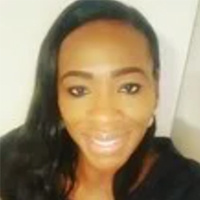Bellerose Criminal Lawyer, New York
Sponsored Law Firm
-
 x
x

Click For More Info:
-
Law Offices Of George Vomvolakis
275 Madison Avenue Floor 35 New York, NY 10016» view mapCriminal Defense Law Defending New York City Night And Day
We believe in personal attention for each and every client as we understand the anxiety and fear facing criminal charges may cause.
800-824-0380
Vincent Bianco
✓ VERIFIEDVincent Bianco is a practicing lawyer in the state of New York. He received his J.D. from Hofstra University in 1999.
Adrienne D. Edward
✓ VERIFIEDFor 25 years, Attorney Adrienne D. Edward has been offering top-notch legal representation to individuals and families throughout New York and New Jer... (more)
Steven Marc Raiser
Steven is a native of Long Island and has also resided in Manhattan and the Bronx. Before attending college, Steven was a counselor for teenagers who ... (more)
 George Vomvolakis New York, NY
George Vomvolakis New York, NY Practice AreasExpertise
Practice AreasExpertise



